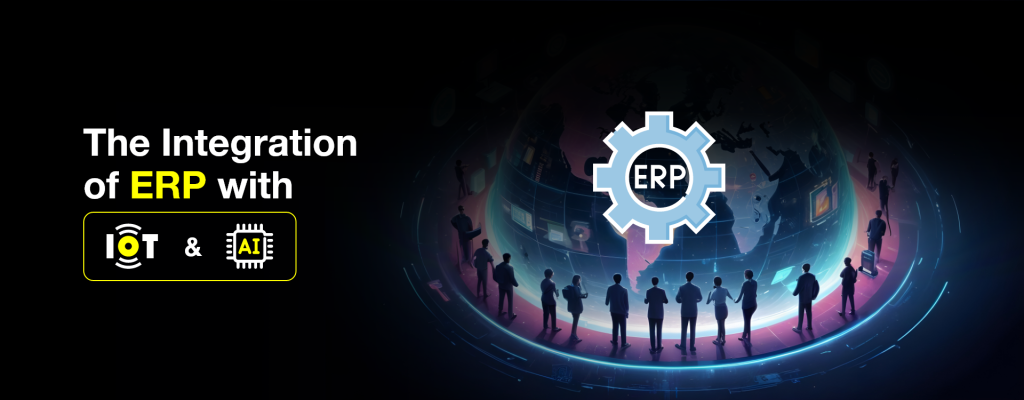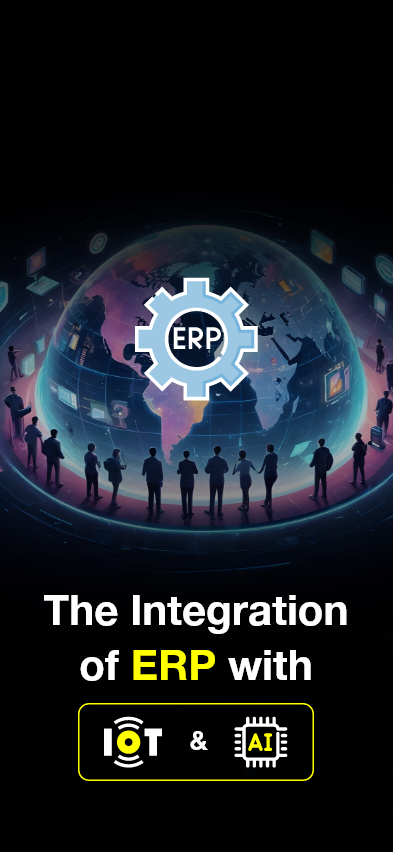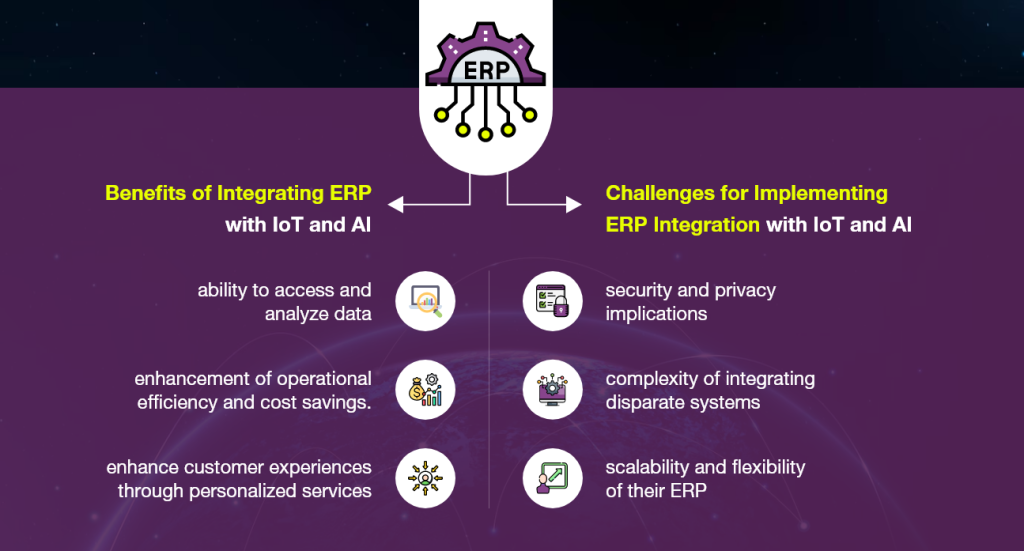

Posted On Jul 15 2024 | 10:01
ERP systems play a crucial role in optimizing business operations by automating repetitive tasks, reducing manual errors, and providing a comprehensive view of the entire organization. From tracking inventory levels to managing customer relationships, ERP systems offer a holistic approach to business management. By standardizing processes and data, ERP systems help companies streamline their operations, enhance productivity, and adapt to changing market demands effectively.
In today’s dynamic business environment, the scalability and flexibility of ERP systems have become essential for companies looking to stay competitive and agile. Whether it’s a small start-up or a multinational corporation, the implementation of an ERP system can drive operational efficiency, improve decision-making, and foster innovation within the organization. As businesses continue to evolve, the role of ERP systems in facilitating growth and sustainability will become increasingly significant.
IoT technology enables companies to digitize physical objects and assets, creating a connected ecosystem that enhances operational efficiency and enables new business models. By embedding sensors in machinery, equipment, and products, businesses can monitor performance, track usage patterns, and gather valuable insights in real time.
The adoption of IoT technology is reshaping traditional business models and opening up new opportunities for growth and efficiency. By leveraging IoT data analytics and predictive insights, companies can proactively identify trends, prevent downtime, and optimize resource utilization. As IoT continues to evolve, businesses across industries are exploring innovative ways to harness the power of connected devices and drive digital transformation in their operations.
AI-powered automation is revolutionizing business processes by streamlining workflows, reducing errors, and increasing operational speed. From chatbots that provide instant customer support to predictive analytics tools that forecast market trends, AI technologies are reshaping the way companies interact with customers, manage resources, and drive growth. By integrating AI into their operations, businesses can gain a competitive edge, improve operational efficiency, and adapt to changing market dynamics effectively.
The cognitive capabilities of AI enable businesses to make data-driven decisions, optimize workflows, and personalize experiences for customers at scale. By analyzing patterns in data, predicting outcomes, and recommending actions, AI systems empower organizations to enhance productivity, mitigate risks, and capitalize on emerging opportunities. As AI continues to advance, its role in business automation and decision-making will become increasingly indispensable for companies seeking sustainable growth and competitive advantage.

To successfully integrate Enterprise Resource Planning (ERP) systems with the Internet of Things (IoT) and Artificial Intelligence (AI), companies can follow a structured approach that encompasses planning, implementation, and optimization phases. The first step is to conduct a comprehensive assessment of current business processes, data infrastructure, and technology landscape to identify integration opportunities and challenges. By understanding the specific needs and objectives of the organization, companies can develop a roadmap for ERP integration with IoT and AI that aligns with strategic priorities and business goals.
Next, companies should evaluate and select suitable ERP, IoT, and AI solutions that meet their functional requirements, scalability needs, and compatibility criteria. Collaborating with https://www.peopletech.com can help companies navigate the complexities of integration, customize solutions to business needs, and ensure seamless interoperability between different systems. Testing the integrated solution in a controlled environment, conducting user training, and piloting the system in real-world scenarios are essential steps to validate functionality, performance, and user experience before full deployment.
Once the integrated ERP, IoT, and AI solution is operational, companies should monitor system performance, analyze key metrics, and gather user feedback to identify areas for improvement and optimization. Regular maintenance, updates, and enhancements are necessary to address evolving business requirements, technological advancements, and user preferences.
As technology continues to evolve, new trends and developments are emerging that will redefine the way companies leverage ERP, IoT, and AI to stay competitive and relevant in a digital economy. One of the key trends is the convergence of ERP, IoT, and AI technologies to create intelligent, interconnected systems that enable autonomous decision-making, predictive analytics, and adaptive processes.
Another trend is the proliferation of edge computing and distributed intelligence in ERP, IoT, and AI systems, enabling real-time data processing, low latency communication, and enhanced scalability. By decentralizing computing power to the network edge, companies can reduce data transmission costs, increase system responsiveness, and improve reliability in mission-critical applications. Edge-enabled ERP integration with IoT and AI opens up new possibilities for smart manufacturing, autonomous vehicles, and connected devices that require low latency, high bandwidth, and real-time decision support.
Furthermore, the rise of industry-specific solutions and vertical integrations in ERP, IoT, and AI technologies is driving innovation and specialization in key sectors such as healthcare, logistics, energy, and retail. Companies are developing industry-tailored applications, domain-specific algorithms, and sector-specific platforms that cater to unique business requirements, regulatory frameworks, and market dynamics. These specialized solutions enable companies to unlock new business opportunities, address industry challenges, and deliver customized experiences that drive growth and competitive differentiation in a rapidly evolving marketplace.
In conclusion, the integration of Enterprise Resource Planning (ERP) systems with the Internet of Things (IoT) and Artificial Intelligence (AI) represents a transformative opportunity for businesses to enhance operational efficiency, drive innovation, and deliver superior customer experiences.
As businesses navigate the complexities of digital transformation, embracing ERP integration with IoT and AI is essential for sustainable growth, competitive advantage, and market relevance. By investing in integrated solutions, fostering a culture of innovation and collaboration, and staying abreast of emerging trends and technologies, companies can future-proof their operations, adapt to changing market dynamics, and drive business success in an increasingly interconnected world. The journey towards ERP integration with IoT and AI may present challenges and uncertainties, but the rewards of enhanced efficiency, agility, and innovation far outweigh the risks, paving the way for a brighter, more connected future for businesses worldwide.
Get in touch with People Tech Group for integrating the right ERP solution for your business or drop an email to info@peopletech.com and the team will get in touch with you.
